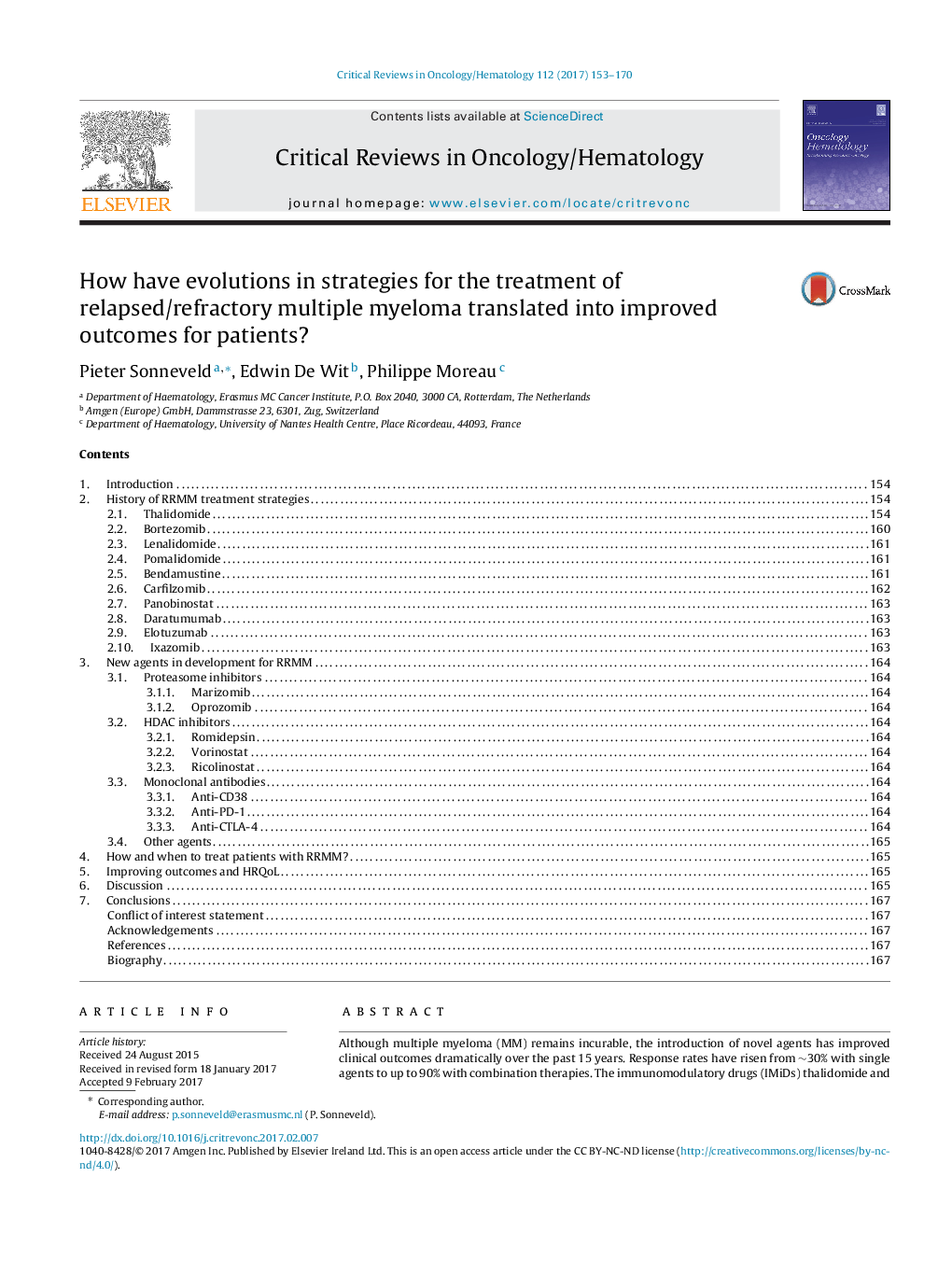| کد مقاله | کد نشریه | سال انتشار | مقاله انگلیسی | نسخه تمام متن |
|---|---|---|---|---|
| 5664144 | 1590705 | 2017 | 18 صفحه PDF | دانلود رایگان |
- Although multiple myeloma (MM) is incurable, new treatments have improved outcomes.
- High response rates are being seen with new agents in patients with advanced MM.
- Approval of new agents such as carfilzomib, ixazomib, panobinostat and the monoclonal antibodies daratumumab and elotuzumab have increased options for patients.
- Better tolerability and longer disease-free intervals improve quality of life.
- Determination of optimal treatment combinations, sequences and timing is required.
Although multiple myeloma (MM) remains incurable, the introduction of novel agents has improved clinical outcomes dramatically over the past 15 years. Response rates have risen from â¼30% with single agents to up to 90% with combination therapies. The immunomodulatory drugs (IMiDs) thalidomide and lenalidomide, and the proteasome inhibitor bortezomib, form the foundations for treatment of relapsed and/or refractory MM (RRMM). Newer agents, such as the IMiD pomalidomide, the histone deacetylase inhibitor panobinostat and the proteasome inhibitors carfilzomib and ixazomib, as well as the monoclonal antibodies daratumumab and elotuzumab, have further improved overall response rates in these patients. Importantly, increased response rates have been observed in heavily pretreated patients. The availability of highly effective and tolerable drugs may offer alternative treatment strategies to those who are unsuitable for treatment with thalidomide, lenalidomide or bortezomib. Improving tolerability of treatment regimens and lengthening progressionâfree intervals has been shown to significantly improve health-related quality of life for patients living with RRMM.
Journal: Critical Reviews in Oncology/Hematology - Volume 112, April 2017, Pages 153-170
